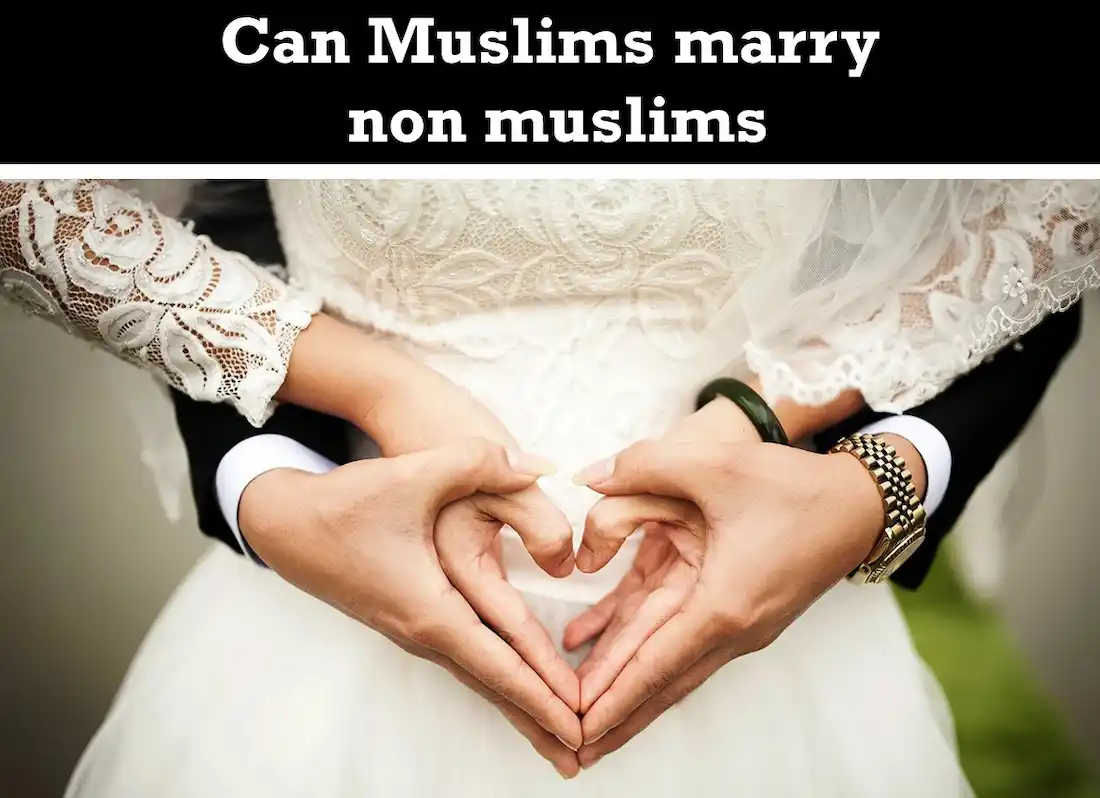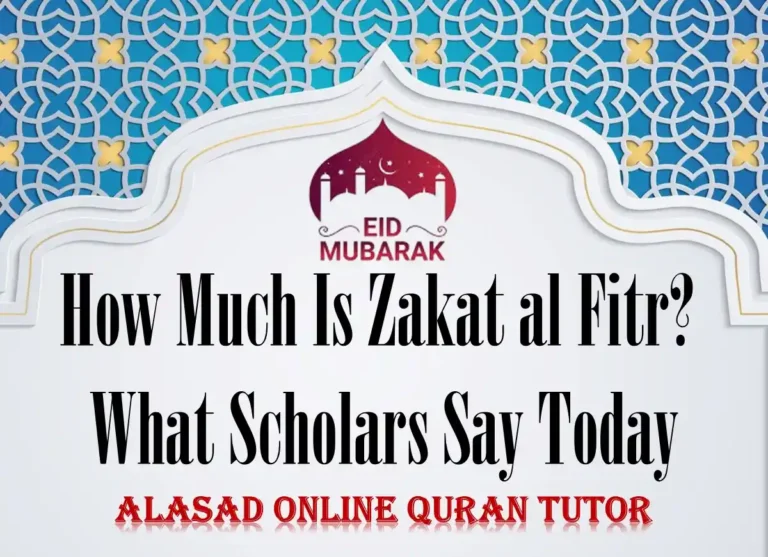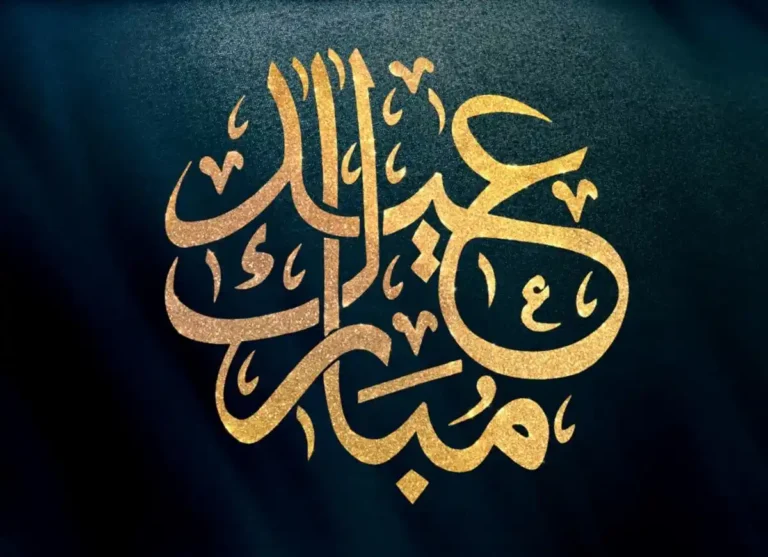Can Muslims Marry Non-Muslims – It is not surprising that marriage between a Muslim woman and a non-Muslim male is a taboo topic in Islam debates.
A broad consensus of religiously sterile opinion states that a Muslim woman cannot marry a non Muslim man, regardless of his religion. However, a Muslim man can marry a non Muslim woman (mostly a Christian or Jew) if he is “People of the Book” .
What is the Qur’an’s view on this topic? How does it address the marriage of Muslim women and men to non-Muslims. This issue is addressed in only one Qur’an verse. It is the only verse that explicitly addresses this issue.
Suggested Read : How Many Chapters in Quran? ,la ilaha illa anta subhanaka, Has The Quran Been Changed?, How Many Pages in Quran? , Allahumma Ajirni Minan Naar, Allahu Mahdina, Allahu Alam , Allah Yashfeek , Allah Subhanahu Wa Ta’ala
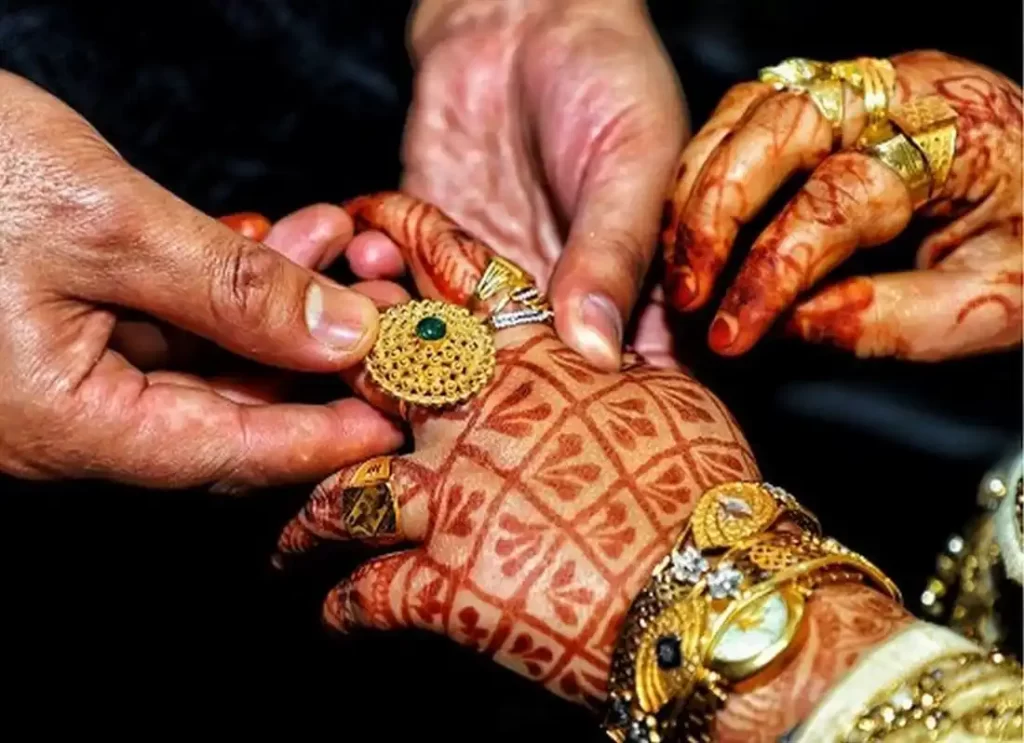
Can Muslims Marry Non-Muslims – Allah tells us: “Don’t marry idolatresses, (al mushrikat), until they believe. And don’t marry idolaters (al Mushrikin), until they believe (hatayuminu). A believing slave is better that an idolater even though he would be happy to please you. They invite to the Fire and Allah invites them to forgive and go to the Garden. Qur’an 2/221
This Qur’anic order clearly prohibits the marriage of believing men and women to Polytheists. They are called ” mushrikin “.
This order makes sense as it was revealed during the brutal war on believing Muslims by polytheists ( Al-mushrikin). It is worth noting that polytheists belonged to an aristocratic group of indecent conduct and extravagant wealth, whose lifestyle was rethought by the new social values Islam teaches about fairness and equity.
Although the Qur’an does acknowledge the possibility of mutual attraction between a believer and a polytheist man or woman, it strongly discourages such an alliance. This verse appears to encourage Muslim women and men to choose modest, believing slaves over arrogant polytheists, even though the former may be more appealing than the poor slaves.
This reference to “slaves” (men or women) is a clear indication of the moral values the Qur’anic Revelation tended instill in people. The Qur’an displayed “Tolerance” toward slavery, which was common at the time. On the other hand it tried to break the first chains in social hierarchy by preferring “poor” believing slaves over those who were wealthy.
Islam encouraged Muslims to marry slaves, regardless of their social circumstances, and to appreciate people on a different basis than their social status.
The new believers must be protected against abuse by polytheists who see this new religion as a threat. According to the Qur’an, Muslim women and men should marry believers who have similar faith awareness and are aware of justice on Earth. This was done to prevent Muslims from marrying to polytheists, who would not stand for a religion that defended the most vulnerable people on the planet.
Muslim women and men were encouraged to marry those who believed in one God, which symbolises a monotheism that is free from all injustice and divinities.
According to the verse, Muslim women and men are permitted to get married to believers (mu’minin), but not to polytheists (mushrikin). It is important to note that the Qur’anic verse clearly emphasizes the completely egalitarian approach for both men and women. This is not confusing. Both men and women are addressed by the Qur’anic order.
Suggested Read: The Islamic World by Ladan Akbarnia, Nahj al-Balagha by Imam Ali Ibn Abi Taleb, Lost Islamic History by Firas Alkhateeb, Stranger The History by Aatish Taseer, Prophet Muhammad (PBUH) by Abu Moosa Reza, Islamic Art by Luca Mozzati and Islamic History For Kids: Story of Uhud
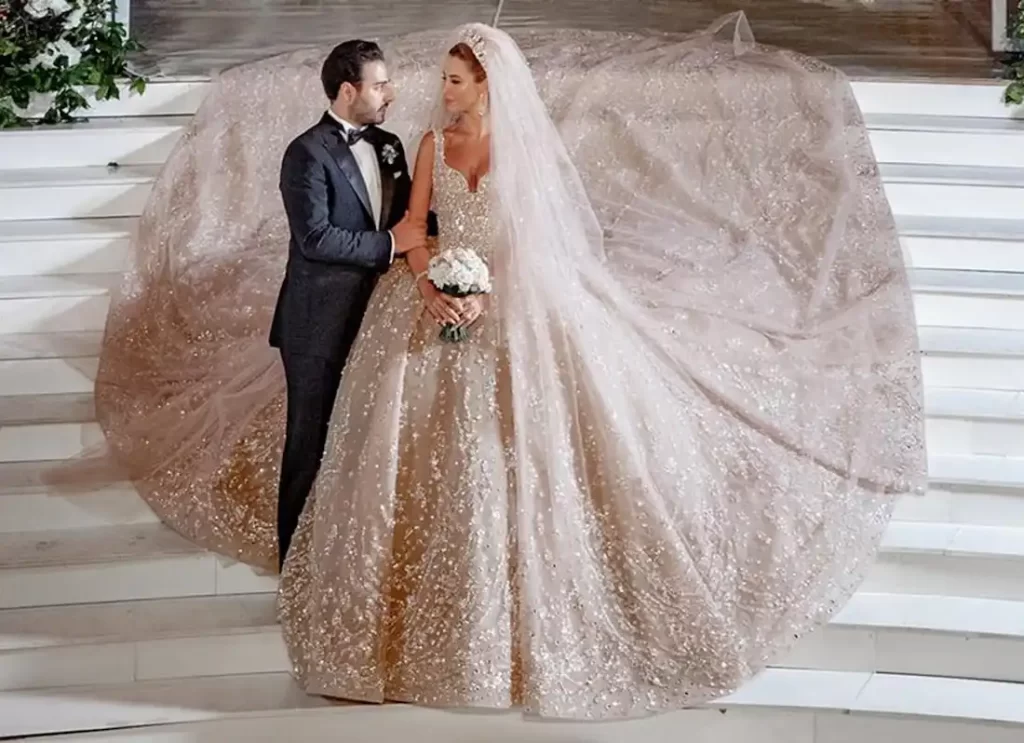
Can Muslims Marry Non-Muslims – However, it is still controversial as to whether Muslim women and men are allowed to marry. This is not stated in the Qur’anic verse.
Which types of “believers?” are you referring to? Is it only for people who have recently embraced Islam? Is it a general term that refers to the belief in one God and a monotheistic Revelation?
The verse can be interpreted in many ways. It is clear, however, that the Qur’anic order refers to both men and women of Islam. However, this is not mentioned in any of the Islamic exegesses.
You will be surprised to learn that the concept of “believing men” and “believing women” are interpreted differently depending on whether they are Muslim men or Muslim females.
All classical interpretations emphasized the verse’s first half, which is intended for Muslim men. The debates also shed light on the notions of the “believing women” and the “polytheist women” that a Muslim man can legally marry [2].
Ibn Kathir, an exegete, begins his interpretation by saying that “polytheists” are people who worship idols . (‘abadatu assnam). [3].
Both contemporary and classical exegetes did a thorough analysis of the verse’s first section, which addressed Muslim men. However, they gave less weight to the second portion that addresses Muslim women.
Commentators now state that Muslim men can marry women from the “People of the Book” ( al kitab). The majority of commentators consider Christian or Jewish women to be believers. Many exegetes support their position by referring to another verse, which validates the first verse and proves Muslim men can marry Christian or Jewish women.
The majority of the exegetes concluded that this verse was the end of the debate about “the belief” of Christians and Jews, concluding they were neither polytheists nor disbelievers ( Mushrikin).
The exegete Ibn Achour went even further with his interpretation, saying that the verse explicitly prohibits marriages of Muslim women or men to polytheists ( Al mushrikin), while other monotheistic religions are not specifically mentioned. Although he disagreed with other scholars, he said that the term polytheist was not well defined. However, a Muslim man can marry a Christian or Jewish woman [5].
The second verse seems to address both Muslim women and men. To grant both the same authorization, we can confirm that both jurists and scholars of Islam agree that the marriage of a Muslim woman and a non-Muslim male is strictly prohibited.
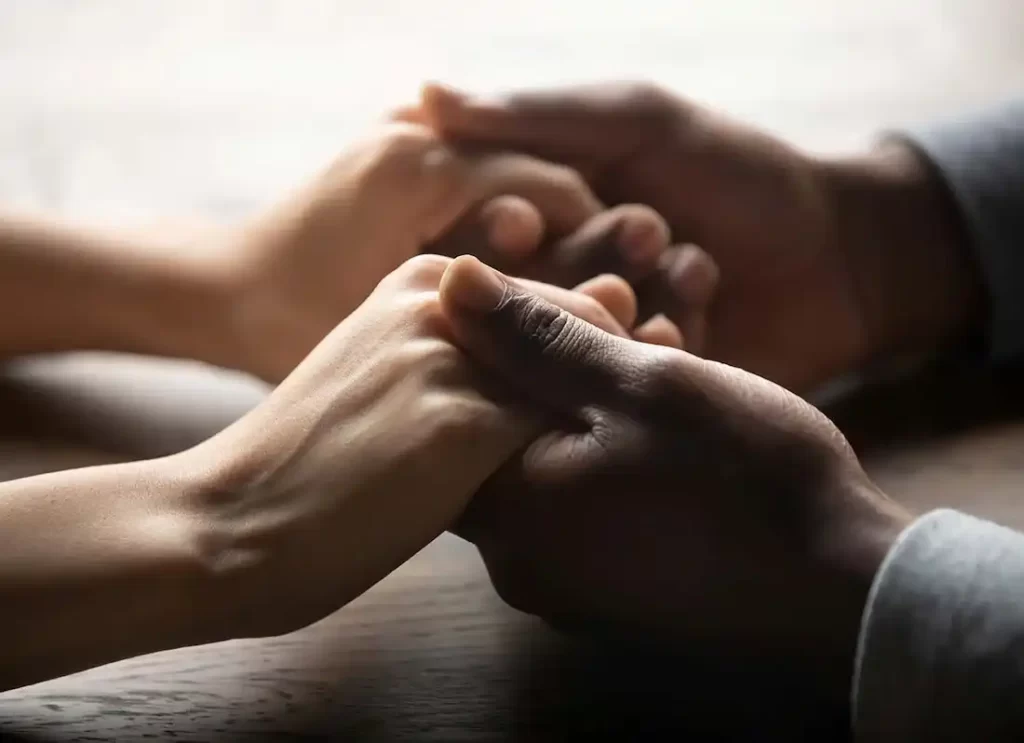
Suggested Read: Dua Leaving House, Dua of Forgiveness, Dua of Taraweeh, Dua of Musa Alayhi’salam, Dua For Success, Dua For Marriage , Dua For Rain, Dua For Parents, Powerful Dua and Dua For The Sick
Can Muslims Marry Non-Muslims – Ibn Achour believed that there is no religious text that permits or forbids Muslim women from marrying Christian or Jewish men. He said that scholars had agreed to forbid such marriage due to several factors, including the analogy ( Al quiyass), and consensus ( Ijma’), though they admit that no reason is given for this prohibition in religious texts [6]. This scholar believes that the prohibition of marriage between a Muslim woman and a Christian or Jewish man is not based upon any Qur’anic text, saying or statement of the Prophet but on a mutual agreement among scholars from all eras [7].
Most scholars don’t give sufficient explanation for this prohibition, which seems to contradict the general meanings of gender equality implied by this Qur’anic verse.
Others, however, tried to justify the prohibition with another verse. It reads: “O You who believe!” Examine believing women who come to you as fugitives, (Muhajirat). Allah knows their faith best. If you believe them to be believers, don’t send them back to disbelievers (kuffar). Qur’an 60,10.
However, the revelation context and general meaning of the verse are not related to the issue of non-Muslim marriage. According to the classical interpretation, this verse was revealed by two Quraish polytheist men who asked for their sisters’ return, Oum Kelthoum (from Quraish) and Bint Aqabah (from Medina). They had converted to Islam and moved to Medina to join the Muslim community [8].
It is important to recall that at that time, the Prophet signed an agreement called Al-Hudaybya Treaty (with the opposing Quraish tribe) to end the war for ten year. The agreement stated, among other things, that any Quraychit women who joined the Prophet in Medina without permission from her legal tutor should be returned to Mecca.
Oum Kelthoum was the only person in her family to convert to Islam and escaped from the most hostile environment. She begged the Prophet to not repatriate her to her tribe to avoid being exposed to their unfair treatment [9].
This verse was revealed in order to stop the extradition of women who convert to Islam and to avoid the vengeance from their families. The Prophet forbade the exiled women from being returned to their enemies and maintained the agreement for the men.
The verse’s explanation above shows that it doesn’t address the issue of marriage to non-Muslims. It was revealed rather to satisfy strategic requirements to protect women who convert to Islam against their will and who ask for protection from the Prophet.
These classical interpretations highlight the contradiction in the fact that Muslim women cannot marry “disbelievers”, including Christian and Jewish men. However, Muslim men can marry Christian or Jewish women. How is it possible to say that in the same Christian and Jewish community, men are disbelievers, while women are believers?
The current scholars claim that there is no evidence to support the ban on Muslim women marrying Christians or Jews. It will also adversely impact the education of the children, they said. The Muslim man can still dominate his Christian or Jewish wife while protecting his faith and that of his children. This is a generalized notion that isn’t always true. The “strength”, or “weakness”, of a religious belief is not related to gender. It is more about the person’s personality, character and personality.
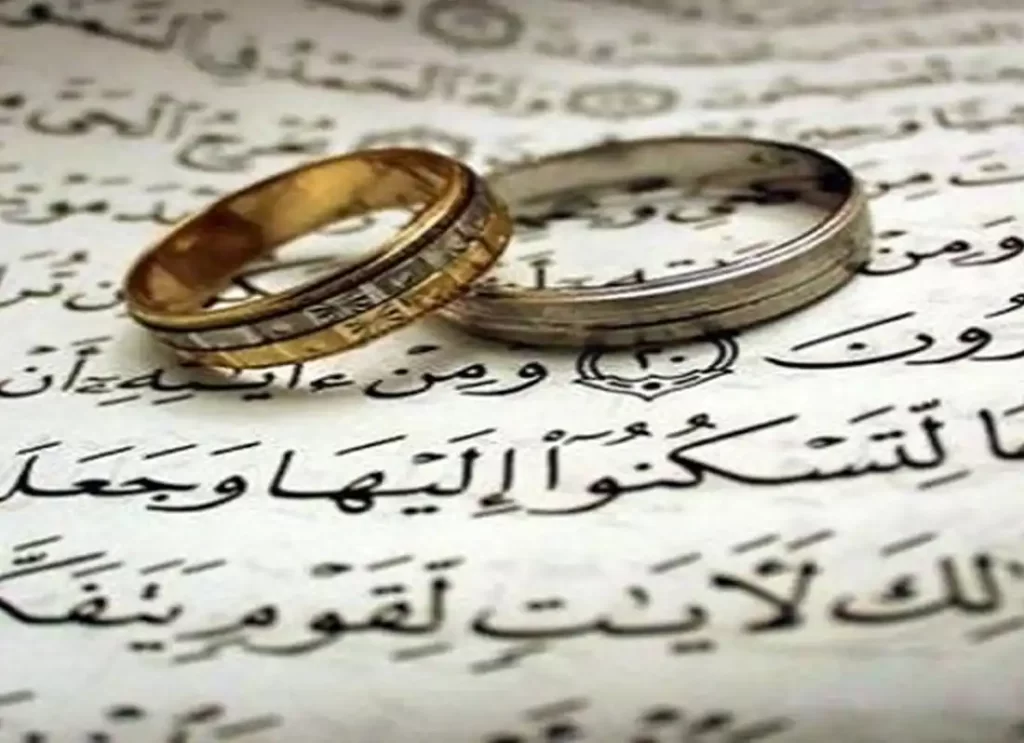
Can Muslims Marry Non-Muslims – The argument is actually not convincing. If the verse prohibits a Muslim woman from marrying a Christian or Jewish man, as it is currently interpreted, then such marriage is also prohibited for a Muslim man. However, the Qur’anic verses as well as the Islamic ethics state that Christians and Jews can be considered believers in all religions, regardless of differences in the dogma or the theological philosophy.
This verse is therefore interpreted to show that the Qur’an forbids both Muslim women and men from marrying polytheists.
Qur’anic verse addresses the issue of Muslim women marrying other faiths. It uses an egalitarian language to set out rules. It is important to note that scholars unanimously agree that a Muslim woman cannot marry a Christian or Jewish man. However, there is no Qur’an verse that specifically prohibits this.
This raises the question of how can we categorize people based on their religious, cultural, or spiritual backgrounds in today’s conceptual, cultural, and globalized world. How do we identify a person as a Muslim, Christian, Jew, or believer? What about people who are part of a religious culture but still believe in God?
What is the point of people who come from the same Muslim culture and marry together, but do not inherit any religious customs or the family name? A non-Muslim man looking to marry a Muslim woman must often show his Islam “in the appearance” to “save face”.
Mixed marriages can be more vulnerable to misunderstanding due to cultural or religious differences. This could lead to marital instability at any time. This is true for all marriages. However, the most important thing is to share an intellectual and spiritual common interest, strengthened mainly through mutual respect.
Even though there may be differences or problems in a marital relationship, the fundamental ingredient that will bring about harmony and serenity is mutual respect. This strength can also be found in the respect one shows for the other’s traditions and beliefs.
This article is not intended to encourage young Muslim females, who will wisely want to preserve their spiritual heritage, to ignore traditions. It is meant to help them overcome the taboos, and hypocritical social practices that can sometimes be unfair.
It is time to be intellectually courageous and discuss such subjects while discussing Islam. This will help to avoid moral suffering and guilt for many young Muslims who are primarily from the West and more likely to encounter non-Muslim partners in personal life.
Young Muslim women and men must choose a partner with full responsibility, wisdom, clarity, and serenity.
This debate is absent in modern Muslim societies, where unorthodox ideas and social conformism have replaced intellectual and spiritual honesty. We should not hide behind a stifling bastion of identity. Instead, we must face the truth and accept that the world is changing. It is important to recognize that in order to keep the spirituality of our hearts, we must overcome the hypocrisies that have eroded our way of living.
Can Muslims Marry Non-Muslims – It is important to reexamine the meaning, purposes and moral of the Qur’anic verse about interreligious marriage. This should be done through a thoughtful debate that transcends emotions. We need to examine the true and profound meaning of certain concepts in multicultural and global societies,
such as “the believing people and women” or “People of the Book”…. We should emphasize the primary value and the initial spiritual trend which underlie this verse. It calls for honesty and mutual respect to be the pillars of any marriage.
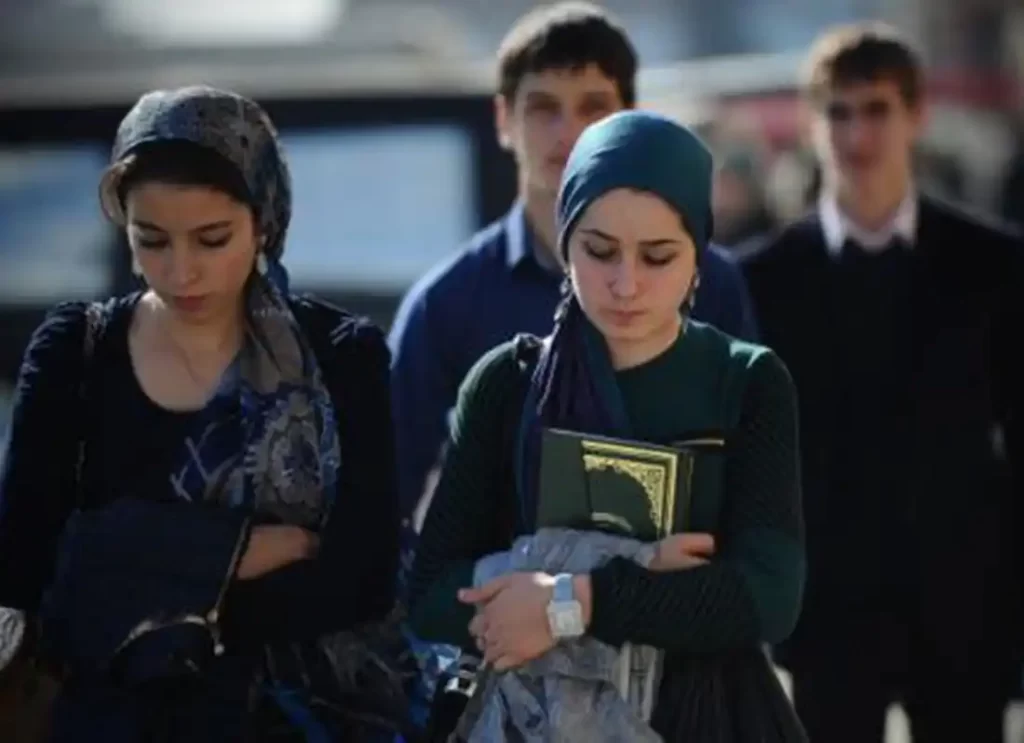
Allah is the Greatest Knower.
[1] is a group of people who are members of a religion where a Book has been revealed as the Torah/Bible. These books are required to be believed by Muslims since they were revealed from the same Creator. The Qur’an is the final revelation of the universal spiritual message that God sent to all humanity through His prophets.
[2] Attabari.
[3] TafssirIbn Kathir. p 604, Vol 14.
[4] Refer to Tafsir Attabari Vol 17, p 299 and Tafsir Ibn Kathhir for the interpretation.
[5] Tafsir Atahrir Wa Tanwir of Ibn Achour. pp. 359 and Vol. 1-2.
[6] idem
[7] According to the majority of scholars, the very few hadiths forbidding the marriage of Muslim women with “People of the Book”, are considered weak. Attabari’s interpretation of verse 2:221. Idem.
[8] Tafssir Ibn Kathir.
[9] Al Fassi << al ‘aql al matin >>, in Asmaa Ahmed Zayda’s book, << dawr al mar’a assiyassi fil ‘ahd nabawi wa al khulafa’ arrashidin”, Dar Assalam, 2001, p 151.


